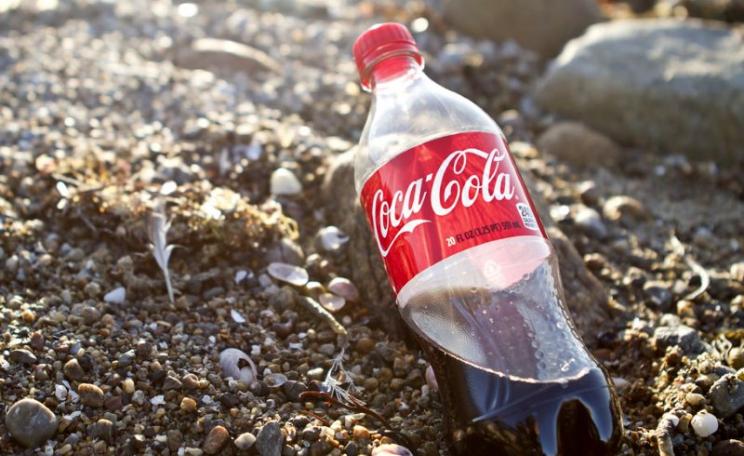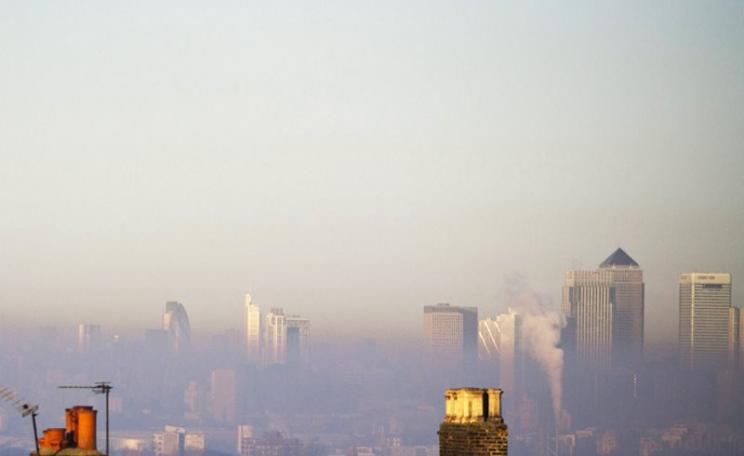The Work Programme for 2015 will be an opportunity for a fresh start, focusing on what truly matters for citizens - jobs, growth and investment.
The European Commission plans to scrap its flagship Circular Economy package and anti-air pollution rules next week.
The executive will ditch the rules from its 2015 work programme, sources told EurActiv. The announcement is expected to be made next week, on Wednesday 17th December following a College of commissioners meeting the previous day.
The Circular Economy package is designed to increase resource efficiency and recycling, and the Clean Air Package imposes rules that set member states' air quality targets.
Sources told EurActiv that Commissioners were handed a secret document yesterday (10 December) at their weekly meeting.
The document, outlining a list of bills to be killed off by Commission Vice-President Frans Timmermans, was taken back from the Commissioners, after it was read and discussed.
Greg Archer, Transport & Environment's clean vehicles manager, commented: "President Juncker and vice-president Timmermans think they are playing a clever PR card by axing the Clean Air package in a bid to cut so-called 'red tape'.
"But the fact is air pollution is the single biggest environmental concern of Europeans and the press has stories week-in week-out about how dirty air is choking our cities and causes 400,000 premature deaths a year."
Environmental laws ditched, air quality rules weakeed
A leaked version of the work programme, which emerged today, appeared to confirm the environmental laws, and 78 other pieces of pending legislation, would be scrapped. The Air Quality rules would be modified in view of the 2030 Climate and Energy package, the document said.
Timmermans is conducting a screening exercise of pending legislation as part of the Commission's drive for "better regulation". He sent a letter to the Commissioners last month, which suggested the rules were under threat.
Commissioners will meet on Tuesday to discuss the programme. An official announcement should follow the next day in the European Parliament. The decision has not yet been finalised and could still change. Any withdrawal will first be discussed with the European Parliament and Council.
EurActiv has obtained a copy of a letter sent by European Parliament President Martin Schulz to Commission President Jean-Claude Juncker, dated 9th November. Schulz stressed concerns that environmental and social policy feature adequately in the programme.
Both bills were on a hit list of laws that the influential trade association BusinessEurope sent to the Commission. BusinessEurope wanted the Circular Economy package to be withdrawn and re-tabled as an economic piece of legislation. Laws to reduce air pollution should be withdrawn, they said.
Juncker's plans run into fierce opposition
Environmental NGOs responding by writing to Juncker and Timmermans, asking the Commission to speed up the implementation of the bills.
Among them was Pieter de Pous, the European Environmental Bureau's policy director, who complained of the "extremely negative message to European citizens" the Commission was sending out.
The Work Programme for 2015 will be an opportunity for a fresh start, focusing on what truly matters for citizens - jobs, growth and investment.
"Basically, it no longer cares about improving their health and quality of life, nor will it try to protect the environment. Instead it is guided by short-sighted business interests which are unwilling to develop new and cleaner business models. 'Better regulation' is deregulation pure and simple."
Belgium, Germany, Greece, Spain, France, Italy, Cyprus, Luxembourg, Portugal, Slovenia and Sweden wrote a letter to Commission President Jean-Claude Juncker on 1st December, calling on him to keep the Air Quality and Circular Economy packages.
The European Commission said it could not confirm or deny the legislation would be ditched, as the contents of its work programme had not yet been finalised:
"This Commission is committed to making a difference and to doing things differently. The Work Programme for 2015 will be an opportunity for a fresh start, focusing on what truly matters for citizens - jobs, growth and investment ...
"The Commission is also reviewing all pending proposals, in accordance with the principle of political discontinuity and to allow all the institutions to focus their efforts on priorities. The Commission is considering proposing to withdraw proposals which do not match the political priorities or which are out of date.
"In some cases the Commission, whilst fully supporting the objectives behind certain proposals, is considering withdrawing them to replace them with more effective means to achieve them, with a realistic chance of being adopted.
"The Commission is also looking at how to put a renewed effort into implementing what already exists, also making sure it's fit for purpose and works on the ground."
Laws and rules at risk
The Circular Economy package was proposed in July 2014. It contained a wide-ranging list of legally binding targets. They include:
- a 70% recycling target for municipal waste by 2030;
- an 80% recycling target for packaging, such as glass, paper, metal and plastic by 2030;
- and a ban on landfilling of all recyclable and biodegradable waste by 2025.
The package also lists a series of "aspirational" goals, which are not legally enforceable:
- a phase out of landfilling of all recoverable waste by 2030;
- a 30% reduction of waste by 2025;
- and a 30% fall in marine litter by 2020.
The Air Quality package revises rules first set in 1999. The 2013 proposal revises targets set in 1999, toughening then and increasing its scope to cover some new pollutants.
It fixes emissions ceilings at national level, for nitrogen dioxide for example, obliging member states to hit air quality targets. Supporters say it is the only way to reduce cross-border pollution in the EU. Sectors such as vehicle and fuel legislation, shipping regulations and UN agreements are covered by the draft law.
Green MEPS were also appalled at Junckers' proposal. "Allowing air pollution to go unchecked would mean sentencing children and adults to poor respiratory health and earlier death", said Keith Taylor, Green MEP for South East England.
"I call on European Commission President Jean Claude-Juncker to keep this crucial piece of legislation in order to protect the health of our 507 million European Citizens."
Better environment protection benefits us all!
Angelo Caserta, director of Birdlife Europe and current chair of the 'Green 10' group of leading environmental NGOs in Europe, said:
"We are deeply concerned that environmental protection and sustainability is not only going to be absent in the Commission's Workplan for 2015 but that Vice-President Timmermans is even planning to withdraw two recently proposed pieces of legislation that would bring major benefits for citizens' health, the environment as well as for Europe's economy - the air package and circular economy package.
"By withdrawing the air quality proposal, the European Commission would miss the opportunity to prevent as many as 58,000 premature deaths per year that result from air pollution, when the current toll is 400,000 premature deaths per year.
We would also miss a huge economic benefit to the European economy as the air quality directive would deliver health benefits of €40-140 billion in avoided external costs and provide about €3 billion in direct benefits due to higher productivity of the workforce, lower healthcare costs, higher crop yields and less damage to buildings.
"Withdrawing the circular economy package would also go against the number one priority of the European Commission. Europe would fail to create as many as 180,000 new jobs through turning waste into a resource while making business more competitive and reducing demand for and dependency from costly scarce resources from outside the continent."
This article was originally published by EurActiv.
More from EurActiv:







